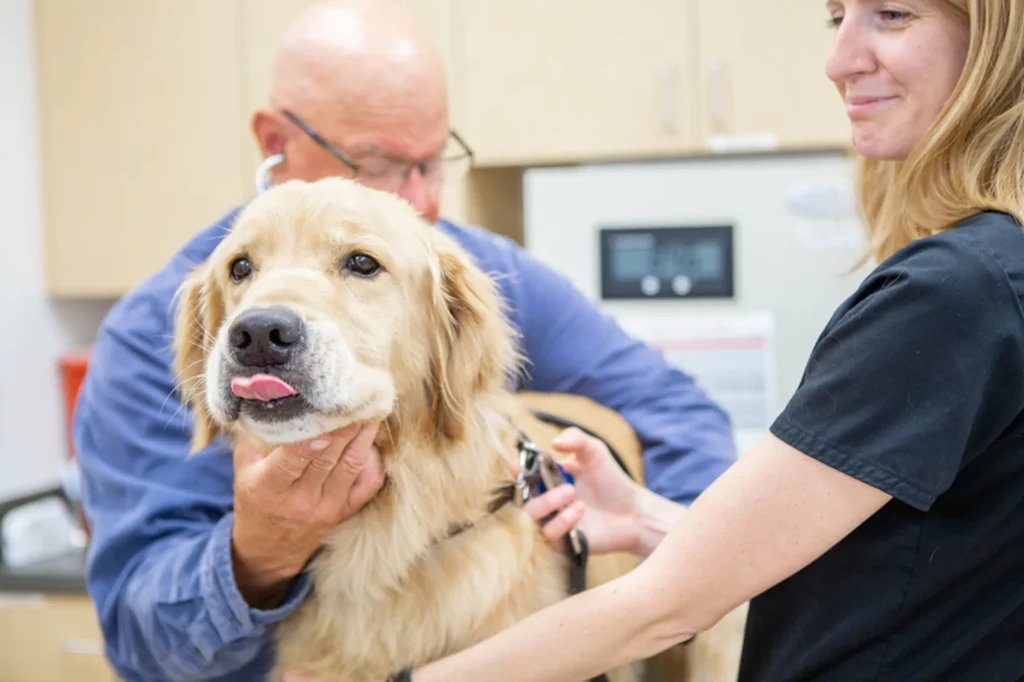Parasite Prevention
Parasites are a common and potentially serious risk to your pet’s health. Fortunately, with proper prevention, precaution, and care, the threat of parasites is almost completely avoidable. At Crescenta Cañada Pet Hospital, our comprehensive approach to parasite prevention will ensure your pet stays protected from these small but significant pests.

Conditions Caused by Parasites
External parasites, such as fleas and ticks, and internal parasites, like intestinal worms, can cause a range of health issues for your pet, from mild discomfort to life-threatening illness. Some parasites can also be transmitted from pets to people, making it important to know how to protect your pet, yourself, and your home.
Common parasitic diseases and complications include:
- Heartworm disease
- Tick-borne illnesses (Lyme disease, ehrlichiosis, Rocky Mountain spotted fever)
- Anemia
- Flea allergy dermatitis or hypersensitivity
- Malnutrition and weight loss
- Weakened immune system
- Zoonotic infections (pet-to-human transmission)
How Do Pets Get Parasites?
Understanding how parasites spread can help you better protect your pet.
Pets can pick up parasites from their surroundings or other animals, or by eating contaminated food, water, waste, or soil. Fleas, ticks, and heartworm-carrying mosquitoes live outdoors but can easily sneak indoors to bite pets year-round. Intestinal parasites, like roundworms and giardia, are often spread through infected animal feces or contaminated soil or water.
Parasite Prevention: Your Pet’s Best Defense
Protecting your pet, home, and family from parasites begins with a strong prevention plan. This includes:
Year-Round Flea, Tick, and Heartworm Prevention
Regular Intestinal Parasite Screenings (Fecal Tests)
Annual Heartworm Disease Testing for Dogs
Annual Tick-Borne Disease Screenings for Dogs
Deworming Treatment for Kittens and Puppies
Environmental Management

Signs of Parasites in Pets
While some parasites can cause visible symptoms, others can go unnoticed until pets are severely infected or ill. Signs your pet may have parasites include:
- Scratching, biting, or chewing at the skin
- Hair loss
- Fatigue
- Unexplained weight loss
- Coughing or breathing issues
- Vomiting or diarrhea
- Visible parasites (crawling fleas, attached ticks, worms in stool or vomit)
If you suspect your pet has parasites, don’t delay. A quick diagnosis and targeted treatment can restore their health and protect your family and home from zoonotic threats.
Partnering Together Against Parasites
At Crescenta Cañada Pet Hospital, we’re focused on every aspect of parasite prevention and management. From recommending the best preventive medications for your unique pet, to diagnosing and treating infections and infestations, we’ll provide customized, compassionate support and a strong defense for your pet.
